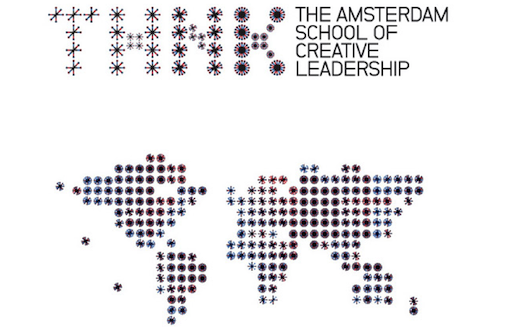3 simple ways to make a creative breakthrough at your startup

Imagine an Executive Education program designed to catapult the
next generation of creative leaders—offering the very best of
business school and design school.
Then find the most culturally and
professionally diverse and highly impressive cohort of MBAs,
entrepreneurs, World Economic Forum Young Global Leaders and
technology pioneers, artists, engineers, Ashoka Fellows, TED
Fellows, Singularity University Fellows…
Throw in a board
representing McKinsey, Stanford’s d-School, Pixar and Creative
Commons. Work with partners like the Carbon War Room, Phillips, and
the Lego Foundation.
Get rid of lectures.
Replace with deep conversations, boat forums, open innovation projects, experiential learning, serious play and a holistic approach to mind and body balance.
You just might start to get an idea of the most inspiring and transformational Executive Education program I have ever attended at the THNK Amsterdam School for Creative Leadership.
The 18-month program is designed
to accelerate the impact of some pretty amazing people with lofty
goals. Like building an interface that helps users regain control
over digital data; and engineering an online platform that allows
societies to design their own currency based on their local
values.
We began with a
pre-program THNK Mirror assessment (which anyone can currently take for
free) to get a 360-peer report on 5 overarching competencies and
sub-competencies that creative leaders should
nurture:-
- Acting with passion & purpose
- Envisioning a better future
- Explorative mindset
- Orchestrating creative teams
- Driving breakthrough change
For me, even just taking the assessment highlighted the areas I had personally been neglecting in my own enterprise.
Part of our creative leadership development also includes learning the tools of the THNK Creation Flow: an innovative methodology developed by THNK that somewhat unorthodoxly combines design thinking with linear problem solving techniques used by management consulting firms.
Here Are Three Practical Things I Learned At THNK
1. Learning to Reframe.
Reframing is a key technique used in the THNK curriculum and one that can be applied to both professional or personal situations requiring a new perspective; such as rethinking a relationship, or coming up with new products and services.
The tool enables creative ideas to emerge by forcing us to analyze and reframe our core beliefs, and I have found it particularly useful for identifying opportunities in adversity.
For example “I see no opportunity to sell shoes in this country, nobody wears shoes.” Is reframed to “Glorious business opportunity to sells shoes, nobody has them yet.”
You can try is using THNK’s online ReFrame tool.
2. The Art of Letting Go
This is a tough one for
me.
As entrepreneurs we tend
to be over-achievers. We usually think we know better the fact that
we’re entrepreneurs in the first place means that we believe we can
do or make something better than someone else did or
could.
Some of us also have the gift
(and curse) of being over-organized, over-prepared, and some may
even say: a little OCD.
I used to love surprises
and embracing the unexpected. I used to adore drama
improvisation workshops at school. Today, my meticulously planned
processes and schedules allow room for neither serendipity nor
co-creation.
Don’t get me wrong;
organizational skills are invaluable for many endeavors but,
here are some of the
downfalls.
First of all, these
slightly obsessional traits can also lead to never-ending
perfectionism. As a close someone likes to remind me “Done is
better than perfect.”
Secondly, not letting go
can mean an unwillingness to delegate. And worse; it obliterates
the potential for a co-creation of ideas and ultimately, more
innovative solutions.
3. “There are no bad
ideas, only bad adapters.”
As someone who
instinctively plans the journey— and already knows the destination
while the instructions are being given, I learned that:
“YES, AND...” creates a
breakthrough.
Try this little exercise:
think of the last time someone from your team offered you an idea
or suggestion that you shot down by saying “Yeah, but…” because you
already had your own vision of the outcome.
Now, replace this
response with “Yes, AND…” and try to build on the
ideas by giving up individual creativity for co-creation.
If you just thought to
yourself “Yeah, but…” about this exercise then this one’s
definitely for you!
Yes it can be terrifying
to give up control over the direction of an idea, but the creative
exploration of possibilities is addictive—I
can’t wait to go back for my second THNK module!


